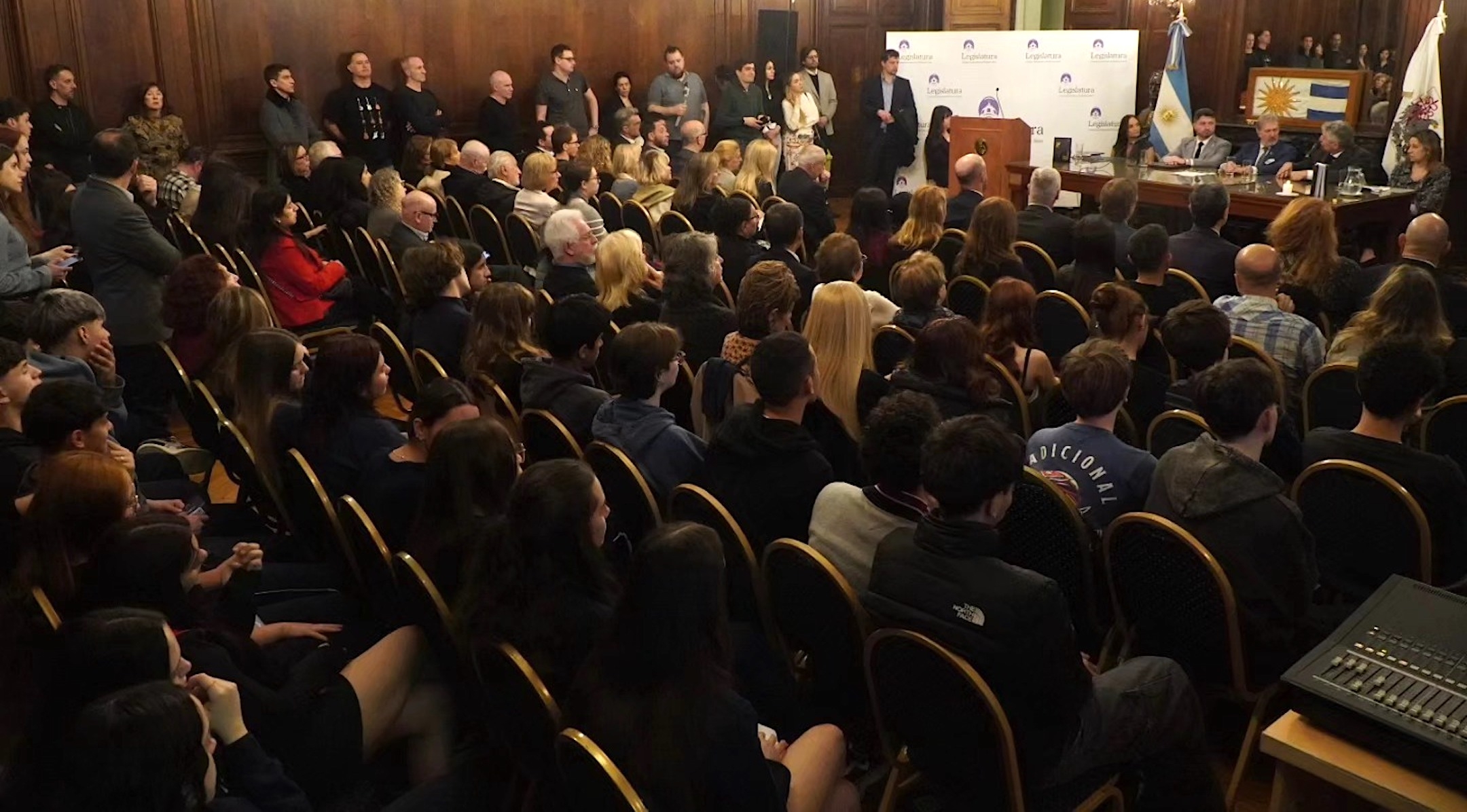Argentina posts 44% increase in reported antisemitic incidents in 2023, mostly after Oct. 7
A new report makes Argentina the latest country to record a spike in antisemitism following the attack and the subsequent Israel-Hamas war in Gaza

Representatives of DAIA, Argentina’s Jewish umbrella organization, present 2023 data about antisemitic incidents at Buenos Aires City Legislature, Sept. 16, 2024. (Courtesy DAIA)
(JTA) — BUENOS AIRES — Argentina experienced a 44% increase in reported antisemitic incidents in 2023, mostly after the Oct. 7 attack on Israel, according to a report issued Monday by the country’s Jewish umbrella organization.
The report makes Argentina the latest country to record a spike in antisemitism following the attack and the subsequent Israel-Hamas war in Gaza. Antisemitism watchdogs in the United States, Germany and elsewhere across Europe have all recorded steep rises.
According to DAIA, which unveiled the report at the Buenos Aires City Legislature, 57% of all antisemitic incidents last year took place in the three months after the attack.
What’s more, the organization found, Israel shot up as the cause of antisemitic incidents. In 2022, about 11% of antisemitic incidents in Argentina related to Israel. Last year, the proportion was 40%.
And the rate at which antisemitic incidents took place in person also rose. (Most incidents that DAIA recorded took place online.) In the nine months before the Oct. 7 attack, 72 in-person incidents were recorded. In the three months after, there were 150.
Among the in-person incidents that DAIA logged in its report were the word “Hamas” and a crossed-out Star of David that was drawn on a student’s desk and a building that hung a sign reading, “Zionists out of Palestine. This did not start on 7/10. Hitler fell short.”
From before Oct. 7, it included the inclusion on a restaurant’s menu of an “Anne Frank” hamburger and “Adolf” fries; the restaurant changed the items’ names after members of the Jewish community, including DAIA, criticized the menu for trivializing the Holocaust.
Marisa Braylan, the report’s author and the director of DAIA’s Center for Social Studies, told the Jewish Telegraphic Agency that the tally reflected a sad reality for Argentine Jews since Oct. 7.
“The attack did not generate empathy towards the victims. There was silence, there were justifications and in the worst cases, there was admiration,” she said. “On Oct. 7, a latent antisemitism was dusted off.”
















